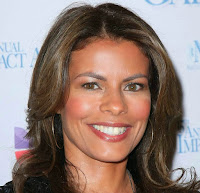For
Black History Month this February and with Women’s Month in March, why don’t we
merge both celebrations in one three-part TV series? So here’s Being Mary Jane,
the Season 1-3 review!
“The truth is
rarely pure and never simple.” – Oscar Wilde on an MJ note
The Rundown
Behind
the name: Original title—Single
Black Female—to spotlight what it means to be a single black female in the USA
Country: USA, 2015
Genre: Drama, Romance
Network: BET
Director: Salim Akil (most episodes)
Cast: Gabrielle
Union (as Mary Jane Paul/Pauletta Patterson), Lisa Vidal (as Kara Lynch),
Margaret Avery (as
Helen Patterson), Latarsha
Rose (as Dr. Lisa Hudson), Aaron D. Spears (as
Mark Bradley), Richard
Brooks (as Patrick Patterson), B. J. Britt (as Paul Patterson, Jr.), Raven Goodwin (as Niecy
Patterson), Richard
Roundtree (as Paul Patterson, Sr.), Stephen Bishop
(as David Paulk)
Compare to: Can’t think of anything right now or the more
serious, older version of The Mindy Project
Hate it or Love
it? Love it
Synopsis in a Sentence: Mary-Jane, a television news anchor
navigates social issues in America as she works to balance family, career racial,
and social issues as a fabulous, endearing, and relatable Single Black Female—but she’s just being Mary-Jane.
On Writing: The Plot
The plot is interesting; it’s deep and hard-hitting,
it touches on subjects from singlehood to marriage, to female and racial issues
and even more. The writing is well done and very well executed. Since this
review covers 3 seasons, here’s a very, very quick run-down of the general plot
of each season:
Season 1: The Single Lady
Story – Season one was all about the story of the single girl, our
introduction to Mary Jane and here persistent balancing act between her single
life—which can be both a blessing and a curse—her family drama, and her
professional challenges.
Season 2: The Black Story
– Although an ever-present theme in this series, season two delved deeper into
the issues of being black in America, with of course, Mary-Jane’s singlehood
and search for a baby, professional growth, and of course, all the juicy family
drama.
Season 3: The Selfish
Story – In the latest season, we see a more layered and compley plot,
but overall a self-interested MJ. The plot focuses on her as an individual, and
delves into LGBT issues, racial and inter-racial issues, and spotlights on
various US, such as the “Black Lives Matter” movement, and even a small focus
on international issues. But more generally we see a more selfish MJ. She’s mad
at everyone, she seemingly doesn’t take time to mourn a best friend nor does
she take any sliver of responsibility she may have played in her decision to
commit suicide. Still, at the same time, Mary Jane is more centred and focused.
We find a character who is determined to get what she wants and we can’t completely
blame her for that!
This is a black show—more accurately—it is an African
American show, which is fabulous, because there aren’t many shows at all that
go this genuinely deep into Afro-American issues, especially from a female
perspective. Very importantly, it highlights a good section of African-American
experience that arguably has not been effectively covered in modern television.
At the same time, from some perspectives, it seemingly unwittingly has done so
at the expense of putting down another section of the black community—the
African community—in America. More than once, and over more than one season,
BMJ has, in reference, put down Africa not in an overt way, of course, but in a
condescending way that is handed down so inadvertently it is simply insulting!
And that is alienating. It’s great to celebrate brown people on television and
in media, but that should not come at the expense of another set of brown
people.
For a show that seeks to highlight issues faced by a
minority in society, it’s slightly putting down another minority on the world
stage. But this is a Single African-American’s story to tell. Africans will
tell their own story, and Africans are rooting for you, Mary Jane Paul!
(4/5)
On Acting: The Cast
| Gabrielle Union |
Gabrielle Union is Mary Jane Paul and there’s almost nothing more to
say about that! Can you imagine if, one day, Production pulled a “Days of Our
Lives” and switched the actress for Mary Jane with another actress? Would you
care to watch? Union relays her characters assertive confidence and complexity
with ease and intrigue!
Love watching Lisa Vidal
as Kara Lynch in Being Mary
Jane! Her drive and passion and expertise in her
work is great! And Vidal does well to relay all of that!
 |
| Lisa Vidal |
Stephen Bishop is the on-again off-again
boyfriend so we have to
keep him as a male rep on here. He plays his character so well I’m almost
exasperated writing about it right now!
Our other male rep. is BJ
Britt, MJ’s lil brother, and the smart young man. As the actor skilfully
portrays, book smart, but I wouldn’t say life smart as I am sure his not-so
smart decisions will come back to bite him. Just wait for season 4!
(4/5)
On Production: The Creativity
Oh production is
almost everything! The music is lit! The set design—MJ’s house is one fantasies
are made of! #LifeGoals #ProductionKillsIt
(4.5/5)
On Resolution: The
Conclusion
Each season ends well, hinging on an incomplete story
willing you to come back for more. Season three takes its newly found greater
focus on social issues to the next level, daring you to come back for season
four. Ratings show Being Mary Jane steadily
dropping despite its previously earned accolades. Are shows like Empire proving more competition, or is Mary Jane
as a personality becoming just too grating and overbearing? Will you watch to
see more or will you, of whatever reason, ditch Being
Mary Jane?
(3/5)
The Verdict: An interesting
look into social issues in America, and an entertaining watch too.
Overall Score = 15.5/20






















